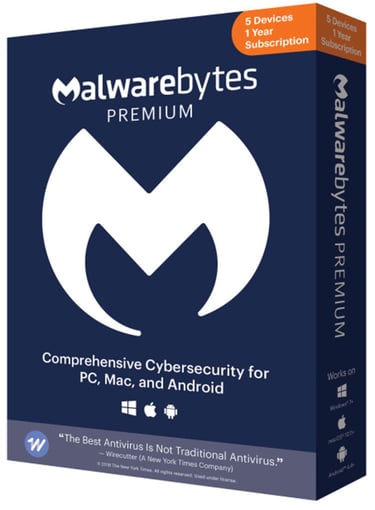Comupter Worm Removal
Shield your devices from computer worms with Malwarebytes Anti-Malware! Our advanced technology swiftly detects and removes even the most elusive worms, ensuring your PC, laptop, phone, and tablet remain safe. Get Malwarebytes_Premium today and experience peace of mind with every click. Your security, our priority. With real-time protection, Malwarebytes blocks threats before they infiltrate your system, providing unparalleled security. Enjoy a user-friendly interface and powerful performance that keeps your data and privacy intact. Don’t compromise on your digital safety. Choose Malwarebytes for the best in worm prevention and removal.


What is a Computer Worm?
A computer worm is a type of malicious software that replicates itself in order to spread to other computers. Unlike viruses, worms do not require user intervention to propagate; they can spread autonomously by exploiting vulnerabilities in software or networks. Once a computer worm infects a system, it can perform various harmful activities such as consuming system resources, deleting files, and creating backdoors for other malware.

This video explains what is a computer worm, how it spreads and how Malwarebytes removes worms before they cause any harm to your device.
Computer Worms can spread rapidly across networks, leading to widespread damage and disruption. Commonly, they are spread through email attachments, malicious websites, or compromised networks. Computer Worm Removal involves maintaining up-to-date software and using robust security measures like installing good anti-malware software like Malwarebytes.
Computer Worms are Not Virus
A computer worm and a virus are both types of malicious software, but they differ in how they spread and operate. A virus requires a host file to attach itself to and relies on human actions, such as opening an infected file or application, to spread. In contrast, a Computer Worm is a standalone program that can replicate itself and spread autonomously without human intervention, often exploiting network vulnerabilities. While viruses can corrupt or modify files, the computer worms primarily consume bandwidth and resources, leading to network slowdowns. Both can cause significant damage, but worms are particularly notorious for their rapid spread and network disruption.
"I Love You" - Computer Worm
The "I Love You" worm, also known as the Love Bug, was a computer worm that emerged in May 2000. It spread rapidly through email with the subject line "I Love You" and an attachment named "LOVE-LETTER-FOR-YOU.TXT.vbs". When the attachment was opened, the worm infected the user's computer, overwriting files, stealing passwords, and forwarding itself to the user's email contacts.
"Morris" - Computer Worm
The Morris computer worm, released in November 1988, was one of the first computer worms to gain widespread attention. Created by Robert Tappan Morris, it was initially intended to gauge the size of the Internet. However, due to a flaw in its code, this computer worm spread uncontrollably, infecting approximately 10% of the Internet, which was then made up of roughly 60,000 computers. The Morris computer worm exploited vulnerabilities in UNIX-based systems, causing significant disruptions and leading to the first conviction under the Computer Fraud and Abuse Act.


"Code Red" - Computer Worm
The Code Red Computer Worm was a notorious computer worm that emerged in July 2001, targeting computers running Microsoft's Internet Information Services (IIS) web server. The Code Red Computer Worm exploited a buffer overflow vulnerability in IIS, allowing it to propagate rapidly across the Internet. Once a system was infected, the worm would deface web pages, replacing them with the message "Hacked By Chinese!" The code red computer worm also launched a denial-of-service attack against the White House website, attempting to overwhelm it with traffic.
Code Red computer worm was able to spread quickly due to its ability to scan for vulnerable systems and infect them without any user interaction. Within a week, the code red computer worm had infected more than 359,000 servers, causing significant disruptions and financial losses estimated to be around $2.6 billion dollars. The code red computer worm defaced websites with the message "Hacked By Chinese!" and launched denial-of-service attacks, including one against the White House website.

The rapid spread of Code Red computer worm highlighted the importance of timely software patches, updates and installing good anti-malware software like Malwarebytes_Premium for Computer Worm removal, taking action against such other vulnerabilities and also underscored the need for robust cybersecurity practices. Malwarebytes, is the top anti-malware software in the world, to remove Computer Worms, Virus, Malware, Ransomware, Spyware, Adware, Rootkits, Keyloggers, Browser Hijackers and much more, safeguarding your PC, Laptop, Phones and Tabs. Works on Windows, Mac, Android and iOS.
The I love You computer worm caused widespread damage, affecting millions of computers and leading to billions of dollars in financial losses worldwide. This worm caused an estimated $10 billion in damages worldwide. It infected over 50 million computers within days, leading to significant disruptions for businesses, governments, and individuals. The computer worm overwrote files, stole passwords, and spread itself through email contacts, causing widespread chaos and financial losses. This Computer worms rapid spread highlighted the vulnerabilities in email systems and the importance of cybersecurity measures like installing Malwarebytes_Premium in your devices to mitigate the Computer Worm removal and cleaning up such other threats.
The estimated cost of the damage ranged from $100,000 to millions of dollars. It led to system crashes, significant slowdowns, and disruptions in critical services at institutions like Harvard, Princeton, Stanford, NASA, and the Lawrence Livermore National Laboratory. This incident highlighted the need for improved cybersecurity measures and led to the establishment of the Computer Emergency Response Team (CERT). Install Malwarebytes_Premium in your PC, Laptop, Phones and Tabs to prevent a Worm attack now.
How Computer Worms Spread
Computer worms spread by exploiting vulnerabilities in software and operating systems. Unlike viruses, worms do not need to attach themselves to a host program or rely on user interaction to propagate. Instead, they autonomously scan networks for vulnerable systems and exploit weaknesses, such as unpatched software or open network ports. Once a computer worm finds a target, it infects the system and replicates itself, often using network connections to continue spreading.

Computer Worms can spread through various methods, including email attachments, malicious links, or compromised websites. They can also infiltrate networks by exploiting weak passwords or outdated security protocols. Once inside a system, computer worms can perform various malicious activities, such as consuming bandwidth, installing backdoors, or launching denial-of-service attacks. The rapid and autonomous nature of worms makes them particularly dangerous, emphasizing the need for up-to-date security measures and regular software patches to prevent infections.
Computer Worm Dangers
Computer worms are particularly dangerous due to their ability to spread rapidly and autonomously across networks. Once a worm infiltrates a system, it can quickly replicate and infect other connected devices, leading to widespread disruptions. The primary dangers of computer worms include:
Bandwidth Consumption: Worms can overload networks by generating excessive traffic, causing slowdowns and outages that impact productivity and communication.
Data Corruption and Loss: Worms can delete or corrupt files, leading to the loss of critical data.
Security Breaches: Worms often install backdoors, allowing attackers to gain unauthorized access to systems and sensitive information.
Propagation of Other Malware: Worms can serve as a delivery mechanism for other types of malware, such as ransomware, spyware, or trojans, compounding the damage.
Denial-of-Service Attacks: Worms can launch DDoS attacks, overwhelming servers and rendering websites or services inaccessible.
To mitigate these risks, it is essential to maintain up-to-date software, use robust security measures, practice safe browsing habits and installing a reputed anti-malware software like Malwarebytes_Premium in your devices.
WormGPT - Unleashing AI
In 2023, a new Computer Worm was unleashed by the Hackers. It is called WormGPT. This Worm is an mother of all Computer Worms with an innovative approach to harnessing the power of AI or Artificial Intelligence for conversational agents. Combining the principles of worm-like propagation and the versatility of GPT (Generative Pre-trained Transformer) models, WormGPT can autonomously spread and integrate across various platforms and systems. This AI tool aims to enhance communication, streamline workflows, and provide seamless support in real-time. Ensuring the responsible development and deployment of WormGPT involves robust safeguards to prevent misuse and unintended consequences.

WormGPT Computer Worm misuse poses significant risks to a normal computer user. If exploited by malicious actors, WormGPT could autonomously spread and integrate into systems, leading to unauthorized access and data breaches. This could result in the Theft of Personal Information, Financial loss, and Compromised Privacy. WormGPT could also be used to disseminate misinformation or harmful content, impacting user trust and safety.
Additionally, WormGPT Computer worm has the ability to perform automated tasks could be manipulated to launch cyberattacks, such as distributed denial-of-service (DDoS) attacks, causing widespread disruptions. The autonomous nature of WormGPT makes it particularly challenging to detect and control, emphasizing the need for robust security measures and the need to implement robust safety measures in your devices to prevent WormGPT like installing a good and industry standard anti-malware software like Malwarebytes which has the capability to remove all types of Malware including all types of Worms.


Cyber Security Threats
Malwarebytes Premium
Protect all your devices from all Malware and Viruses
© 2025. All rights reserved.
